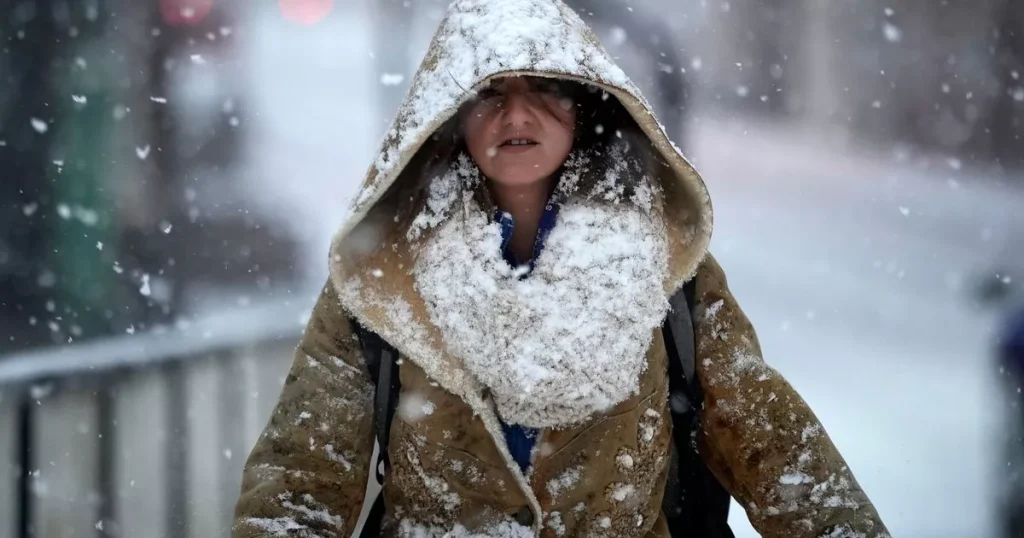DWP Cold Weather Payments worth £25 explained as three-day snow warning issued

Temperatures are set to plummet over the weekend, which could potentially result in a £25 payment from the Department for Work and Pensions (DWP).
An icy spell hit the UK overnight, with temperatures nearly plunging below minus 8C in some parts of Scotland and northern England. On Saturday from noon until midnight, a yellow warning for snow and ice covers all of England except the south-west and the whole of Wales.
The amber cold health alerts also cover the whole of England but are not in place for the rest of the UK. When temperatures drop this low, the DWP could potentially pay out their Cold Weather Payments.
The energy support scheme – which is run by the DWP – provides cash payments of £25 to people living in England and Wales when temperatures are recorded as, or forecast to be, zero degrees Celsius or below for seven consecutive days. If the cold snap lasts longer, you do get more payments. This means you could be eligible to get £50 or even £75.
Cost of living scheme giving free £300 plus £65 supermarket vouchers – who can claim
O2 axing key mobile phone service this month – how to apply for refund
Cold Weather Payments are issued between November and March each winter. The extra cash is designed to help cover the extra costs associated with cold weather – like the need to put on your heating. The payments are made automatically if you're eligible and appear in your bank statement within 14 days of the cold snap.
To be eligible, households will need to claim one of several DWP benefits, which include Pension Credit, Income Support, Job Seekers Allowance, or Universal Credit. However, it is not as simple as claiming.
With Pension Credit, you will be eligible for the payment as long as you don't live in a care home. For Income Support and income-based jobseeker's allowance (JSA), you'll only qualify if you have a disability or pensioner premium, a child who is disabled, get Child Tax Credits that include a disability or severe disability element, or you have a child under five living with you.
For income-related employment and support allowance, you'll be eligible if you have a severe or enhanced disability premium, a pensioner premium, a child who is disabled, get Child Tax Credits that include a disability or severe disability element, or you have a child under five living with you.
For those claiming Universal Credit, you can get the payment if you have a health condition or disability and have a "limited capability for work", or you have a child under five living with you. Finally, with support for mortgage interest (SMI), you'll be eligible if you get it but also have a severe or enhanced disability premium, a pensioner premium, or a child who is disabled.
You can also be eligible if you get Child Tax Credits that include a disability or severe disability element, or if you have a child under five living with you. The payment will be labelled "DWP CWP" on your bank statement, and they will be made into the same bank or building society account where you receive your benefits.
It's important to remember that these payments do not cover those living in Scotland. Households there receive a flat-out payment of £58.75 each winter, called the Winter Heating Payment.
According to the latest data, just under 1.2 million payments were made in England and Wales between November 2023 and March 2024, after 31 qualifying periods of cold weather. The first Cold Weather Payments were issued on November 21 this year. The first payments were triggered in 12 postcode areas in Cumbria, four in Northumberland, and two postcodes in the Scottish Borders, which also cover part of England.
You can use the Cold Weather Payment postcode checker on the DWP's website to see if people in your area are due a payment.
Stacey Dooley looks like a 'toastie Barbie' in statement pink duvet jacket you can shop for less



